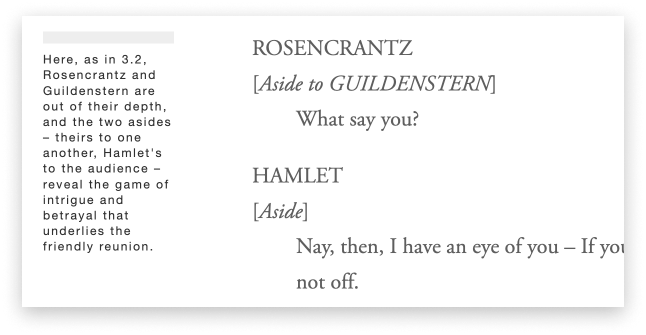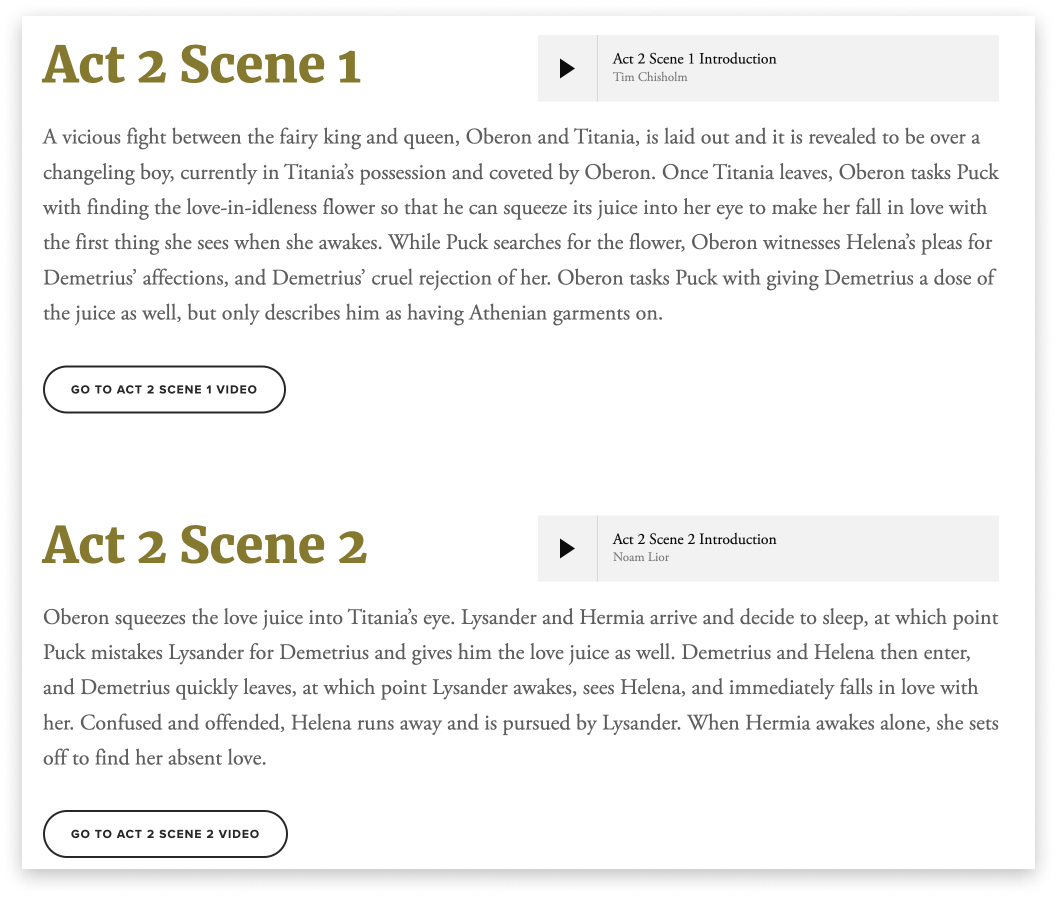Watch Shakespeare while you read
Shakespeare wasn't meant to be read, which is why reading his work can be so difficult and intimidating. His words were meant to be brought to life in performance. That's why our site provides a video of every scene, with simple staging to help keep the focus on the words and the story.
Available video editions - always free
Designed for the classroom
Our website is perfect for students learning Shakespeare for the first time, and that's why Shakespeare at Play is being used in schools around the world. We strive to take the intimidation out of learning Shakespeare by presenting several different methods of presenting his works -- from the text to our videos to a suite of annotations that bring clarity to his words and actions.
We have designed a site that encourages students to engage with the elements that they need in order to understand Shakespeare's challenging works. Our content empowers students to tackle Shakespeare on their own terms, and that allows class time to be spent discussing character, theme and motivations rather than the meaning of this word or who that character is.
“My students love and appreciate having access to Shakespeare at Play! It is such a helpful resource...Being able to read and watch each scene is critical in helping them understand content. ”
Simple layouts
Every play on our site is divided by scene, and every scene has a multitude of ways to make the text understandable.
At the top of the screen is the video performance, in which every line of the scene is performed. This is rare in any production of Shakespeare, but essential when studying the full script.
Below the video is the text of the scene itself, edited and annotated by Dr. Noam Lior in an easy-to-read format. All of the text is annotated to help understand how to read text that is meant for performance.
In-line notes
There are thousands of notes spread throughout the plays, focusing on areas of interest, repeating themes, character choices, and more to help readers and serve as great in-class discussion fodder.
Scene intros and descriptions
The table of contents for each play has a description of the action of the scene, so that readers understand the structure of what they are about to read, as well as an audio introduction that helps give context to the action and point out key things to watch out for in the story.
Romeo and Juliet
Macbeth
Hamlet
A Midsummer Night’s Dream









